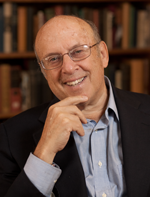
Jeffrey Carduner, Aesthetic Realism consultant, writes:
At a time of tremendous worry—what needed knowledge is here, in “A Loving Conquest of Reality”! This new issue of TRO is greatly, authentically kind, as it is scientific, about a large source of distress in people: the conflict in us between knowledge and feeling, logic and emotion. Also, you’ll learn in this issue—in keeping with its title—about the one kind of conquest we can respect ourselves for. You will be educated, you will be thrilled, as you read the latest number of The Right of Aesthetic Realism to Be Known.
The commentary by Ellen Reiss begins:
Dear Unknown Friends:
Published here is the second part of the magnificent lecture Art Is within Science, which Eli Siegel gave in 1969. His series on the relation of art and science—a series to which this talk belongs—is definitive about a matter huge in human thought and in the everyday lives and confusions of people. Art and science have represented one of the big divides for people. Each is important without end. Yet mainly, even those persons who care for both have not felt, as they studied higher mathematics or dealt with a problem in engineering, that they were the same persons who were swept by an aria of Verdi or a painting of Monet.
Further, as I wrote in the last issue: within every person there is something corresponding to the art-science battle and rift: a warfare, discrepancy, division between knowing and feeling, between truth and imagination, between wanting to be accurate and wanting to be stirred and swept. It is such an ongoing division that we can seem to accept it: our imagination, we can seem to take for granted, is here and our logic there; our feeling is in this part of us and our intellect in that. Yet the division weakens everyone. These opposites, along with others, constitute our very lives. What we want—what we’re living for—is told of in this Aesthetic Realism principle: “All beauty is a making one of opposites, and the making one of opposites is what we are going after in ourselves.” We want to have large emotion that is also exact; we want our logic—somehow—to be warm, to have feeling. The great, kind means to this is Aesthetic Realism.
A Poem on a Scientific Subject
I am going to comment on a very short poem by Mr. Siegel that is overtly on a scientific subject. It is about sensation, a matter that belongs to biology—more specifically, to neurology. For a scientific matter to be expressed as poetry—real poetry—is already evidence that science and art are of each other….Read more